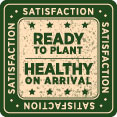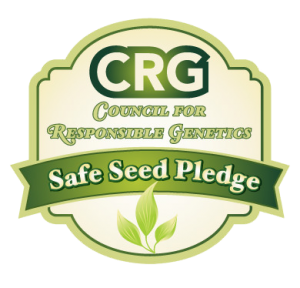What is Organic farming? What is different about it?
Organic farming is certainly not a new concept. Before the 1930’s all farming was done organically. It was hard work, difficult to do on a large scale and most farms were small family owned operations producing just enough to sell locally. During the industrial revolution, tractors, trains, trucks and chemicals changed these small family farms to huge 1000+ acre farms that could produce enough to feed our country and much more. Storage and transportation became the big issue along with chemical fertilizers and pesticides which could be spread easily with tractors on a very large scale.
The only way for small family farms to survive was to join these large farms in their growing methods which created a huge debt for tractors and equipment. As the debt rose the prices came down which put many of these farms out of business completely while benefiting the huge mega farms. In the 70’s-90’s, most vegetable production was moved to South America, Japan and other countries who were able to produce them less expensively. Again storage and transportation became the main issue.
Varieties were developed by the large seed companies which would be able to be held for long periods of time at the semi ripened stage and be able to hold under refrigeration for weeks and even months. As long as tomatoes eventually became red, peaches turned yellow, apples, grapes, lettuces and melons looked good in the grocery store, the varieties were grown almost exclusively.
Organic farming which became popular in the 70’s was a direct result of environmental concerns that the mega farms would destroy all the farmland in this country. Chemicals and over farming were stripping the nutrition out while doing nothing to improve the soil. People were concerned and began a different type of farming which went back to all the old ways. Adding composting materials back into the soil, laying fields fallow, less tilling and always trying to improve the condition of the soil as well as not using established strong pesticides. This type of farming was trendy but over the decades became sort of on the fringes since we all shopped at the local supermarket, there was very little demand for this kind of produce with bug damage and sometimes smaller size.
Since that time, people have realized the important health benefits of vegetables and organic and locally grown produce sold at Farmer’s Markets all over the country have stimulated the Organic movement. The federal government was able to subsidize the establishment of the local farmer’s market and they are growing rapidly. With the establishment of large successful organic farms in California, grocery stores jumped on the bandwagon and started offering organic produce. Now there seems to be a craze for all products organic and a belief that health is very much tied to the words “organic”.
Federal regulations have recently been written (primarily with the help of the large farms in California) to standardize the organic requirements. At one point, anything could be called organic and sold at a premium price without proof at all. Now, every product that claims to be “organic” must have only natural ingredients included and produce must be grown using only natural pesticides & fertilizers. This doesn’t guarantee that it will taste good or be more healthy for you to eat but it does improve the odds over regular grocery store produce shipped from other countries.
Our recommendations on this issue are to visit your local farmer’s market as often as possible. We have seen first hand the incredible quality of this produce grown by the farmer’s own hands and picked at the peak of ripeness and quality. Most of this produce is grown using traditional, sustainable farming methods and is not grown for its transportability and storage qualities. These small family farmers want to grow the best flavored and most nutritious products. Speak to them in person about the farming methods they use and why.
How do I garden Organically?
This is the easiest part. Your backyard has the ability to provide all the organic produce you will need for the whole year! Who needs grass! Use compost yourself along with manures and other natural nutrients (these do come dry and in bags) to constantly improve your soil. Don’t spray chemicals to kill every bug in your garden, there are many natural ways of preventing their damage. Grow plants such as heirlooms that have proven themselves over time and talk to old gardeners about the more natural way to garden. Their grandparents taught them and they will remember those flavors from the garden when they were children. That flavor comes from soil rich in natural minerals and nutrients. We have many products in our online store to help you along the way.



